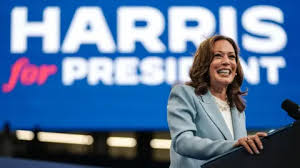Kamala Harris’s campaign for the 2024 U.S. presidential election has taken an unconventional approach, opting for a strategy that downplays detailed policy proposals. Instead, her campaign emphasizes broader themes and values, a decision that has sparked both praise and criticism. This approach, while unconventional, appears to be reshaping the dynamics of the race in significant ways.
1. Emphasizing Values Over Detailed Policies
Kamala Harris’s campaign has chosen to focus less on detailed policy blueprints and more on overarching values and principles. This shift allows her to appeal to a broader spectrum of voters who may not be as concerned with the nitty-gritty of policy details but are drawn to her vision for the country’s future. By highlighting issues like justice, equality, and unity, Harris aims to connect with voters on an emotional and ideological level.
This strategy contrasts sharply with the more traditional, policy-heavy campaigns of some of her rivals. Critics argue that voters deserve to know the specifics of how she plans to achieve her goals. However, Harris’s team believes that by emphasizing shared values and a common vision, they can build a more inclusive and energized coalition of supporters.
2. A Focus on Personal Narrative and Experience
A key component of Harris’s campaign is her personal story and the experiences that have shaped her. Rather than delving into complex policy discussions, Harris often speaks about her background as a former prosecutor and her time as California’s attorney general. She highlights her fight for justice and equality, using her personal narrative to demonstrate her commitment to these causes.
This focus on personal narrative has helped Harris differentiate herself from other candidates. In a crowded field, her story of breaking barriers as a woman of color resonates with many voters who see her as a symbol of progress and representation. Her ability to connect her life experiences to the broader struggles faced by many Americans adds a layer of authenticity to her campaign, further strengthening her appeal.
3. Flexibility in Messaging
By not committing to detailed policy positions early in the campaign, Harris maintains a level of flexibility that can be advantageous in a rapidly changing political landscape. This flexibility allows her to adapt her messaging based on voter feedback and emerging issues. It also positions her to respond more effectively to her opponents’ attacks or shifts in public opinion.
This strategy is particularly useful in a primary race where voter priorities can shift quickly. By keeping her campaign’s focus broad and values-driven, Harris can pivot as needed without appearing inconsistent. This approach also allows her to address a wide range of issues without being tied down to specific proposals that may become liabilities later in the race.
4. A Contrast to Policy-Heavy Rivals
In the 2024 Democratic primary, Harris’s approach stands in stark contrast to the campaigns of her more policy-oriented rivals. Candidates like Elizabeth Warren and Bernie Sanders have built their campaigns around detailed plans and specific proposals. While these plans have garnered significant attention and support, they also come with risks, particularly when it comes to voter skepticism about feasibility or the potential for political attacks.
Harris’s strategy, on the other hand, avoids these pitfalls by focusing on the bigger picture. This approach may appeal to voters who are weary of the political gridlock in Washington and are looking for a leader who can inspire and unite rather than get bogged down in policy specifics. It also allows Harris to sidestep potentially divisive issues that could alienate certain voter groups.
5. Building a Broad Coalition
The broader, values-based focus of Harris’s campaign is designed to build a wide-ranging coalition of voters. By emphasizing themes like justice and equality, she appeals to progressive voters who prioritize these issues. At the same time, her less detailed policy approach makes her more palatable to moderate and undecided voters who may be wary of sweeping changes or complex policy proposals.
This strategy of coalition-building is crucial in a primary race where winning over a diverse electorate is key to securing the nomination. Harris’s ability to unite different factions within the Democratic Party could be a significant advantage as the race progresses. Her campaign’s emphasis on unity and shared values positions her as a candidate who can bridge divides and bring people together.











